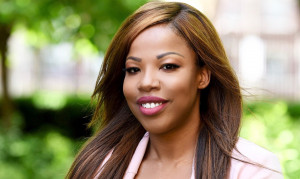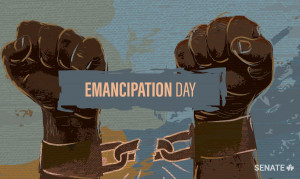The Toronto District School Board (TDSB) Centre of Excellence for Black Student Achievement was founded with the specific purpose of dismantling anti-Black racism within the school board to improve academic outcomes for Black students.
The centre, which is the first of its kind in the Canadian public education system, conducted its virtual opening on June 1, 2021, with several communities in attendance.
The centre will be housed at Winston Churchill Collegiate Institute in the Dorset Park neighbourhood of Scarborough, led by Karen Murray, the centre’s Centrally Assigned Principal.
“We started the work almost a year ago. The official launch was merely ceremonial to indicate our presence and to confirm that we are materializing the promise we made to our community a year ago. This was a successful launch and I couldn't be happier,” says Karen Murray, Principal at the TDSB Centre of Excellence for Black Student Achievement.
Background on Anti-Black Racism in the School System
Edward Buhnai, a parent of a female student, agrees that the lack of representation of Black people in their school system is causing challenges.
Buhnai, like countless parents, is frustrated at the prospects of sending his child through a process that he believes will subject her to racism. “I’ve been through the system. It's improved slightly, but the lack of representation is still a challenge for us. It's something that not only bothers you but also motivates you to do something about the situation,” says Buhnai.
Murray supports Buhnai’s idea by citing a study led by John Hopkins University confirming that introducing just one Black educator can considerably improve the lives of Black students.
Murray, however, is hopeful that while they are facing similar challenges as kids from the 70s, students these days are stronger and more motivated.
“Students of today are stronger than students from the 1970s or 1980s. They're not shy and can confront racism. The problem is with adults who feel uncomfortable naming things. They fear political incorrectness too much,” explains Murray.
Murray recommends that educators not be afraid of engaging in these conversations that will encourage children to confront racism with more confidence.
The other challenge, explained by Tanitiã Munroe, Research Coordinator of the centre, is oftentimes policies are not followed on the ground. She also mentioned that the Black community and families historically did not have much autonomy in the school system.
“Black students and families are looked down upon for not doing enough to support their children. This couldn't be further from the truth. We need to ensure that people see that Black students have a lot to offer and that they’re more than capable of high achievement,” argues Munroe.
Xavier Samuel-Murillo is an 11th-grade student who confirms Munroe’s point, “Racism in today's era is more subtle and not direct. If Black students get higher marks, teachers act surprised,” says Samuel-Murillo.
Munroe wishes to see a shift away from the current ideals of what people think being smart or academics look like.
“The Black community has cultural wealth and capital. Besides, all kids are brilliant. Black kids are brilliant too. It's our responsibility to notice that they're brilliant and deepen it. Don't take their light away,” demands Munroe. She adds, "While there has been a shift over the years, the Centre is able to play an important role in supporting a more coordinated and well-resourced approach across the entire Board. We cannot ignore the essential partnerships of the family and community when we are looking at the education and well-being of Black students."
According to Murray, many Black students are successful despite the challenges they face within the TDSB, and there is a need to celebrate them and inspire more Black students.
“It's unfair for a student to go to school and not feel joy because of the colour of their skin. Our goal is to do whatever is needed to help them feel that joy of going to school and make a difference for their future,” underlines Murray.
The Inception of the Centre
For years, the Black community has been urging the TDSB to create a space for Black students and families that could help them navigate around the academic system. TDSB finally approved funding in June 2020 to open a Centre of Excellence for Black Student Achievement. Its goal is to remove the barriers that are preventing Black students’ ultimate success and celebrate the excellence of Black students.
Putting Black students at its core, the centre is working to be a transformative space to strengthen the community and serve as a space for Black students and families to thrive and get support.
“We want the centre to be a place where Black students and families can dream big and find a safe space far removed from racism,” says Munroe.
The physical location is still under construction, but services are already being offered, such as the Black Student Summer Leadership Program and Black Girls’ Book Club.
It will be a hub including social activities, community support with a space for students, parents, community organizers, and staff.
There are several activities for kids to choose from at the centre.
Pre-Kindergarten Summer Learning program
This project is designed for Black kids who have not yet been introduced to the TDSB system. The project was created to ensure that children make a seamless transition to formal schooling and feel welcome within the school system. It also aims to enhance their literacy, mathematics, problem-solving and analytical thinking skills.
Black Student Summer Leadership Program
This is a program that provides self-identifying Black students in secondary school with experiential learning opportunities at different organizations based on their passion. This five-week course will develop their employment skills and ensure that they can identify opportunities in their respective industries.
“We connect students and employers within the community to maximize placement opportunities and improve their networking skills. Public health, IT, entrepreneurship, media, and community development are among the areas covered so far,” says Keisha Evans, Graduation Coach for Black Students.
Kamylah Tynes-McKenzie is a grade 11 student. She agrees that many Black students do not feel comfortable when it comes to speaking their minds. Tynes-McKenzie found placement at a media company and was very grateful for the opportunity. “They put me in a place where I can gain first-hand experience within the industry and walk out of it with knowledge,” says Tynes-McKenzie.
Black Girl’s Book Club
This program is a space for Black girls to build community and explore new ideas, stories, and ways of self-expression. The club gets together on a bi-weekly basis using virtual platforms to discuss literature authored by Black women and relating their work with real life.
“We discuss books and explore new ideas and ways in which students can express themselves. It helps them build a sorority and enhance healing," says Evans.
Jahniah Coley, a 12th-grade student member of the club, confirms Evans’ statement.
“The club isn’t just about reading. It’s about sisterhood and a safe space for Black girls. I got to meet different people, and discuss my thoughts with the group. I think the great thing about our Book Club is its authenticity. This is a safe space for us all,” says Coley.
The centre is now in talks about extending into middle school and elementary programs.
Research
Currently, the centre is conducting research by inviting all key stakeholders: students, families, staff, and educators in focus group discussions.
The research will provide insights to operationalize the mandate of the centre in order to properly serve Black families and Black students. The research is also about improving teaching and learning outcomes to improve Black students’ experience.
“It's about developing core actions, policy implementation, and board-wide practices,” explains Munroe.
There are many other efforts that the centre is doing to create a space for Black students to help them find their identity in life, understand who they are, and their calling in life. These students are also connected to post-secondary institutions and are provided with opportunities to gain additional credits throughout the summer.
This summer, the centre is partnering with the Faculty of Engineering Secondary School at the University of Ottawa so that high school students can take courses and add engineering credits toward their Secondary School diploma.
The Centre of Excellence for Black Student Achievement uses a monthly newsletter, email, and social media platforms as part of its communication efforts. Aside from these activities, the centre is incorporating communication and transparency to monitor all its work.
The centre has faced its fair share of challenges, mostly because of the COVID-19 pandemic. As well, navigating a system that has always been difficult for Black students is a big challenge.
“There's a trust that has been broken down, there's a system that has failed Black students,” explains Evans. Evans believes that the focus should be on rebuilding trust and relationships so that Black students can feel in control and become better equipped to change the narrative.
What Does the Community Say about the Centre?
Tynes-McKenzie believes that the centre is helping the community in many ways. “I have more confidence than ever before and truly believe that I can do something amazing with my life,” she says proudly.
Her recommendation for the center is to focus more on the younger demographic, “The centre should focus on younger students and those who are attending predominantly white schools. This will prepare them for hardships and challenges associated with racism and ensure they won't feel insecure growing up."
Coley, for her part, is appreciative of the centre's achievement because it provides hope for other Black girls to experience the same.
“I’m so thankful for the Black Girl’s Book Club because it shines a spotlight on Black literature. One of the best feelings in the world is seeing yourself represented in a positive light, and I truly believe that every Black girl should be able to experience that,” says Coley.
Buhnai is happy that the centre is helping the community and providing a sense of representation that has traditionally been lacking in the classroom for Black students in Toronto.
“I feel that the centre has good intentions and the right approach, which is to create a ripple effect to change racist systems that have been perpetuated for years. I feel that this centre gives our children a voice and blueprint of what to do when the torch is fully passed to them,” explains Buhnai.
Murray encourages everyone to do their bit to dismantle anti-Black racism once and for all, “The only way to dismantle a system of oppression is by working together. No one person can do that. This is a collective work,” she stresses.
“Just believe in yourself, push for something even if there is no precedent for it,” Tynes-McKenzie advises Black students. “Taking that big step is truly an amazing feeling and the start of something new, and that’s what brings Black excellence.”
The Centre is located within Winston Churchill Collegiate Institute (2239 Lawrence Ave East) located in the Dorset Park neighbourhood of Scarborough.

 By
By 


